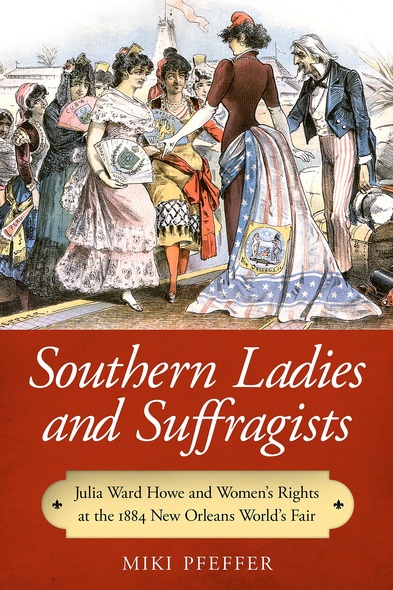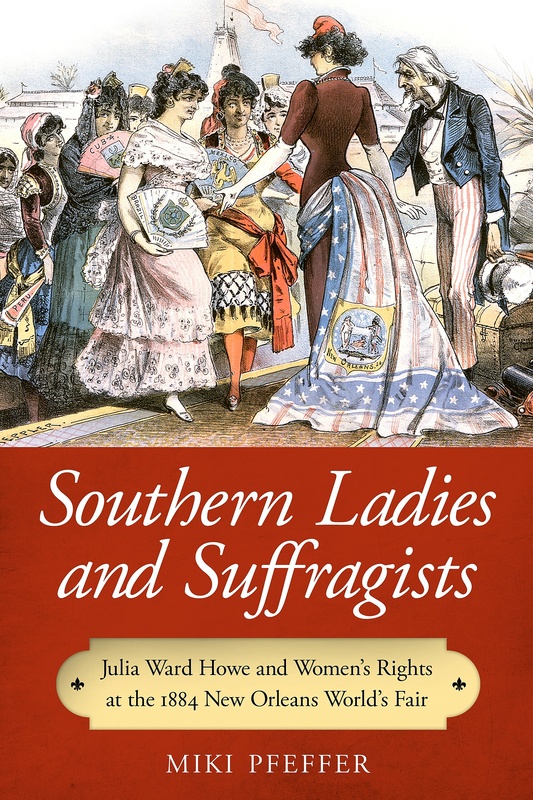
Southern Ladies and Suffragists
Julia Ward Howe and Women's Rights at the 1884 New Orleans World's Fair
Women from all over the country came to New Orleans in 1884 for the Woman’s Department of the Cotton Centennial Exposition, that portion of the World’s Fair exhibition devoted to the celebration of women’s affairs and industry. Their conversations and interactions played out as a drama of personalities and sectionalism at a transitional moment in the history of the nation. These women planted seeds at the Exposition that would have otherwise taken decades to drift southward.
This book chronicles the successes and setbacks of a lively cast of postbellum women in the first Woman’s Department at a world’s fair in the Deep South. From a wide range of primary documents, Miki Pfeffer recreates the sounds and sights of 1884 New Orleans after Civil War and Reconstruction. She focuses on how difficult unity was to achieve, even when diverse women professed a common goal. Such celebrities as Julia Ward Howe and Susan B. Anthony brought national debates on women’s issues to the South for the first time, and journalists and ordinary women reacted. At the World’s Industrial and Cotton Centennial Exposition, the Woman’s Department became a petri dish where cultures clashed but where women from across the country exchanged views on propriety, jobs, education, and suffrage. Pfeffer memorializes women’s exhibits of handwork, literary and scientific endeavors, inventions, and professions, but she proposes that the real impact of the six-month-long event was a shift in women’s self-conceptions of their public and political lives. For those New Orleans ladies who were ready to seize the opportunity of this uncommon forum, the Woman’s Department offered a future that they had barely imagined.
Southern Ladies and Suffragists is a splendid addition to the field of women’s history and cultural studies. It is a model of scholarly research and critical interpretation. Pfeffer has made brilliant use of the rich archival material in New Orleans, particularly the files of the local newspapers and the letters of many New Orleans women involved with the Cotton Centennial. The unwelcome appointment of Julia Ward Howe to direct the New Orleans Woman’s Department in 1884 highlighted deep controversies about ‘sectionalism,' and it provided an opportunity for women journalists to campaign openly against her and for local ladies to snipe at her in private. Pfeffer shows better than anyone else precisely how the visit of Howe and her daughter Maud accelerated feminist thinking and organizing in the South and encouraged women’s literature as well as social activism and women’s higher education.
Miki Pfeffer is an independent researcher and native New Orleanian whose work has appeared in the Encyclopedia of World’s Fairs and Expositions and in journals such as the Louisiana Historical Journal and La Creole.





